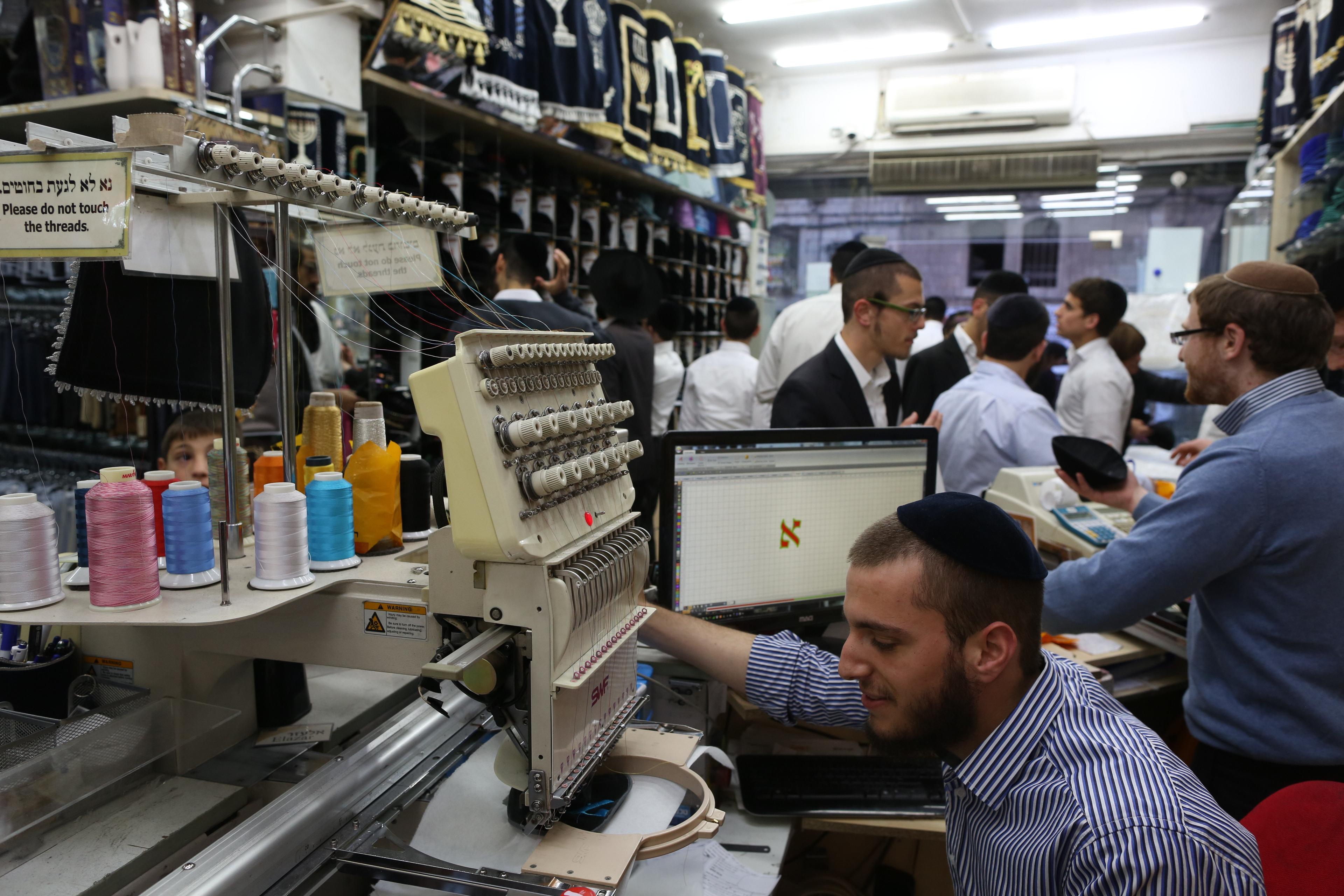Charedim, Economy
Israeli Central Bureau of Statistics: More Charedi Men Working Than Ever Before
There are now more Charedi men working then ever before, primarily due to the pressures of high interest rates and cost of living. However, their work productivity and pay remains relatively low.

55.5% of Charedi men are now working according to the Israeli Central Bureau of Statistics, the highest number registered since the government began collecting data in 1995, according to reporting by Globes.
Per the report, two increases were registered in Charedi male employment since 1995.
The first occurred after 2003, when economic reforms included substantial cutbacks to government child welfare payments, forcing many to work to make up the slack.
The second is now occurring due to high interest rates and inflation, which increase both the mortgage payments Charedi families often pay and the cost of living for providing for usually large families.
A significant part of this increase comes from the younger generation aged 25-34, who make up fully half of the present increase in employed Charedi men, pointing to a significant positive change in attitudes among the younger generation compared to their elders.
As Dr. Gilad Malach of the Israel Democracy Institute put it: "We treated Charedi society as a learning society. When we reached 50% Charedi men in the workforce, it became the learning and working society. Now that we've crossed the 50%, it's the working and learning society."
Still, Charedi workers have problems, such as low work productivity and relatively low hours, which mean that they still earn significantly less than their non-Charedi peers.